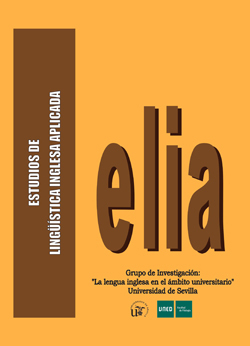
This study explores the effects of teaching apologies at a discourse level on a group of Spanish learners of English as a foreign language both in the short and in the long-term. It adopts a one-group pre-, postand delayed post-test design to particularly examine the effectiveness of a pedagogical model on learners’ appropriate use of apology formulas not only after immediately receiving instruction, but also five months later. An interactive discourse completion test was used to analyse learners’ performance when apologising in different contrasting scenarios. Results show that the types of apology formulas produced by learners in the pretest differ significantly from those produced in the post-test, as well as in the delayed post-test. After receiving instruction, learners produced more elaborated apologetic responses attending to the sociopragmatic aspects involved in the different situations, a performance that was maintained over time. These results seem to demonstrate the positive benefits of instruction to foster learners’ pragmatic knowledge in terms of both frequency and variety of apology formulas not only in the short-term but also in the long-term.